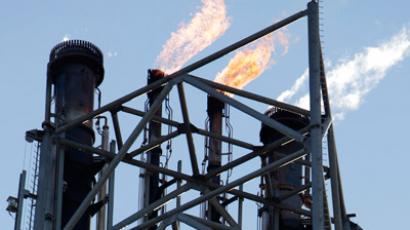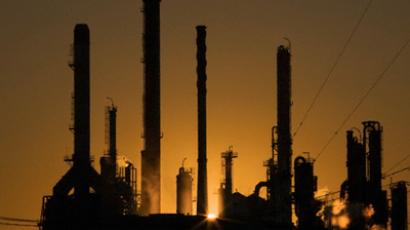Will SWIFT ban on Iran strangle Spain?
With the upcoming EU electronic banking transactions ban on Iran, the Islamic Republic might face a crude economic pinch. However, in an attempt to pressure Tehran, technocrats in Brussels might actually be leading Spain to the scaffold.
SWIFT, the world's biggest electronic banking system, is preparing to cut off Iranian financial firms, including the country's Central Bank, blacklisted by the EU. The move is part of the European plan to impose an embargo on Iranian oil this summer over Tehran’s nuclear program. The EU and US are hoping to force Iran to the negotiating table by targeting its oil revenues.But the measure is expected to backfire on average Europeans, particularly in Spain, which imports over 1.5 million barrels of oil from Iran daily.“Even assuming that the case against Iran is strong, the sanctions right now, exercised by countries like Spain, Greece or Italy, will damage those countries more than it will damage Iran,” journalist Miguel-Anxo Murado told RT.While countries like France and Britain can easily ban Iranian oil because they are not dependent on it, the EU’s most economically battered states – Spain, Greece and Italy – will feel the effect of the sanctions most.“Of course we can’t refuse. The pressure from the US, Britain and France is huge,” Murado acknowledged.Spain is Europe’s second largest importer of Iranian oil after Italy. When the EU-imposed sanctions on Tehran come into force this July, a good share of Spaniards may find driving a car an unattainable luxury.One way or another, Spain has until July to find alternative sources of crude supplies. The country has already promised to switch oil imports as it continues to buy Iranian oil, albeit in lower quantities.In addition, Spain's biggest refiner Repsol has repeatedly declined to comment on the details of its oil purchases.
In late January, Repsol also announced it had started the long-awaited exploration of offshore oilfields near Cuba. However, any positive benefits felt from that venture will not materialize for several years. Petrol prices in Spain used to be among the lowest in Europe. Now prices are rising as the looming oil embargo is expected to push them even higher. In a healthy economic situation, a rise in oil prices might be problematic. But coming at a time when Spain is on the brink of a second recession, it’s proving a nightmare for the population.One year ago, Spain already had to reduce the speed limit from 120 km/h to 110 km/h in an effort to save up to €2.3 billion a year in oil costs.Today, with unemployment soaring at 22.8 percent, Spain has found itself in really dire straits.RT’s Sara Firth spoke with people at a gas station in Valencia and most of them, if not all, seem to be petrified by the prospect of further spikes in gas prices.“It's terrible that we should pay for decisions taken in Brussels, it's not known whom they are taken for but certainly not for ordinary people,” one of them told RT.Spanish citizens said if the already high prices go even higher, people won’t be able to afford gasoline.Attempts to calm fears about a rise in prices have been made, with Saudi Arabia saying it has enough oil to make up for the loss of Iran’s supplies when the embargo comes into force.But countries like Spain will still be paying the price of lost trade with Tehran and the cost of replacing oil contracts with the Islamic Republic, which have in fact increased since the EU-backed Libyan war. Moreover, the prospect of military standoff with Iran is causing huge concern among oil traders and economists.Energy Expert Adolfo Jumenez Regulio told RT that “while there is no war – price escalations due to sanctions can be corrected. The problems will come if there is a war with Iran – then you could see a real crisis.”














